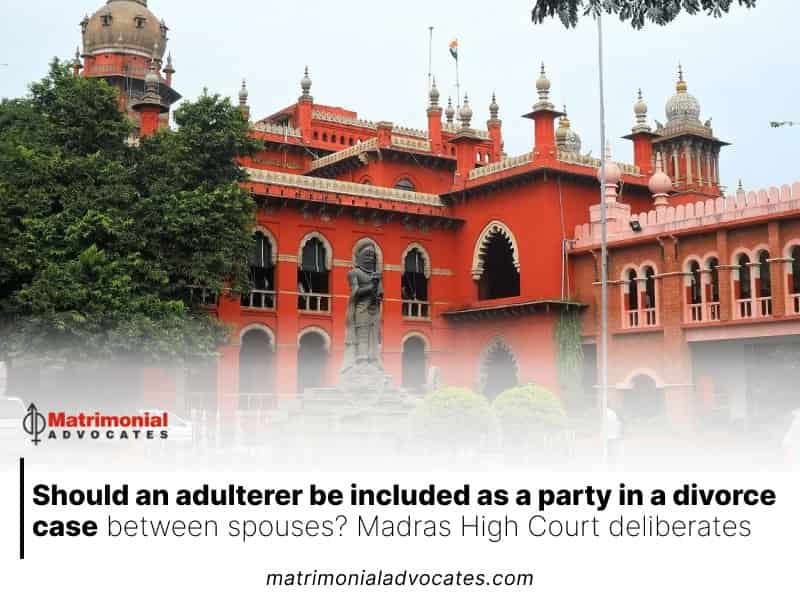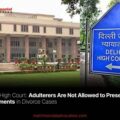
“Some Judges have taken the view that it will amount to invading the privacy of the third party. We do not think so,” the Court said.
The Madras High Court recently held that in divorce cases involving allegations of adultery, the person accused of the extramarital affair (the alleged adulterer) must be included as a party in the proceedings.
A Bench of Justices GR Swaminathan and R Poornima clarified that the only exception to this rule applies when the alleged adulterer’s identity is unknown or they cannot be traced.
In all other cases, the Court emphasized that omitting the alleged adulterer from the proceedings would make the divorce petition non-maintainable.
“If the petitioner (person who seeks divorce on the ground of adultery by their spouse) is aware of the details of the alleged adulterer, he or she must be made a co-respondent. Failure to implead would be fatal and the petitioner will have to be non-suited summarily at the very threshold. If according to the petitioner, the name of the adulterer or adulteress is not known or if the alleged adulterer or adulteress is dead, the petitioner can be excused from the requirement of impleading the alleged adulterer. The petitioner must of course get leave from the court for being so excused,” the Court said.
It is only just and fair that a person is heard before he is condemned. In our culture, to be branded an adulterer is not a badge of honour.
Madras High Court
The Court rejected the idea that adding an alleged adulterer as a party in divorce proceedings between a couple would violate the third party’s privacy.
“Some judges have opined that this would amount to an invasion of the third party’s privacy. We disagree,” the Bench remarked.
The Court stressed that it is more important to give the alleged adulterer a chance to either refute or acknowledge the allegation of an adulterous relationship.
“Accepting the case of the petitioner suing for divorce on the ground of adultery would result in casting stigma and aspersion on the character of the person with whom the respondent is said to have had an adulterous relationship … Opportunity ought to be given to the said individual to disprove the allegation made by the petitioner. Otherwise, he would stand condemned behind his back … it is only just and fair that a person is heard before he is condemned. Certainly, in our culture, to be branded an adulterer is not a badge of honour,” the January 28 ruling said.
The Court further noted that mandating the inclusion of the alleged adulterer as a co-respondent in divorce proceedings could serve as a deterrent against unfounded allegations.
“If making the alleged adulterer as co-respondent is made mandatory, one would think twice before putting forth baseless allegations,” the Court said.
The Bench noted that while the rules established by the Court under the Hindu Marriage Act, 1955, do not mandate the inclusion of an alleged third-party adulterer in divorce proceedings, the Divorce Act of 1869 explicitly requires such individuals to be named as respondents in divorce petitions.
The ruling arose from a case in which a man sought divorce from his wife, accusing her of engaging in an extramarital affair. The wife denied the allegation and filed a petition for the restoration of marital relations.
A trial court dismissed her plea and granted the husband’s divorce petition. Dissatisfied with the verdict, she appealed to the High Court for relief.
The High Court observed that the husband’s adultery allegations against his wife were vague and that he should have included the alleged adulterer as a party to the petition. Since he failed to do so, the Court ruled that his divorce plea was not maintainable. As a result, the High Court overturned the trial court’s decision granting him a divorce.
“It is not the case of the respondent herein that the alleged adulterer is not known to him … If only the respondent herein had made due efforts, he could have definitely secured the address particulars. In these circumstances, the Court below ought to have held that the divorce petition was fundamentally defective and straightaway non-suited the husband-petitioner,“ the High Court opined.





